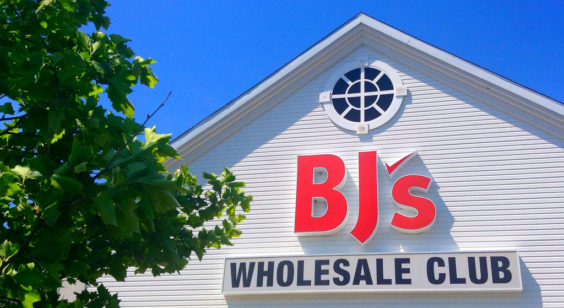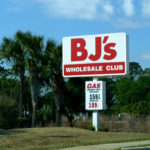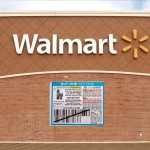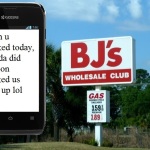
Sometimes a store is going to improperly charge you sales tax on your coupons – and there’s not a darned thing you can do about it, except pay up and quit your complaining about laws, justice, greed, government incompetence and all that.
That’s the hard truth that a couple of Pennsylvania couponers are finding out, several years and several courts into their efforts to get back 38 cents they say they were overcharged at a BJ’s Wholesale Club.
John Myers and Cecelia Reihl’s saga began back in 2012, when they purchased a pack of Glade PlugIns refills at a BJ’s in Downington, Pennsylvania. They had a $2 coupon for the PlugIns, but were surprised to find that they were charged sales tax on their pre-coupon total.
Pennsylvania is one of five states (Connecticut, Massachusetts, Missouri and Texas are the others) in which sales tax is supposed to be calculated after all store and manufacturer coupons are applied – not before.
But that didn’t happen during the duo’s BJ’s visit, nor on two subsequent visits. Four months later, Reihl bought another pack of PlugIns, again with a $2 coupon, and again she was charged sales tax on the full price of the product. The two complained to the cashier and manager, “who told them (falsely) that Pennsylvania law required them to charge sales tax on the full retail price of goods purchased with coupons, and it was BJ’s company policy to do so,” their civil complaint alleged.
A year later, the two purchased – surprise – more PlugIns, plus an Air Wick refill pack and Tide detergent, all with coupons. All were taxed at their full price.
So the pair sued.
Not just for the combined 38 cents they say they were overcharged, but for unspecified damages and a possible class-action award to others who were similarly overcharged.
The case made its way through the county court, was moved to federal court, got kicked back to county court, and was put on hold so the plaintiffs could argue their case to the state Department of Revenue. BJ’s only collected sales tax on the state’s behalf, after all, so if the pair wanted a refund, the state would rightly be the one to provide it.
But the state refused. According to Pennsylvania law, a cash register receipt must “make a clear reference to the item and the coupon related to it” in order for the coupon’s value to be deducted from the taxable total. And “all that is contained on the receipt is ‘SCANNED COUP’,” Myers and Reihl were told. “Nothing indicates to which item the coupon relates.”
The purpose of the “clear reference” rule is to prevent coupons for nontaxable items from being used to reduce the taxable total. In at least one of Myers and Reihl’s transactions, though, every item they purchased was taxable. So it would stand to reason that all of their coupons were for taxable items, which therefore should have reduced their total sales tax. But the state stuck to the letter of the law, and refused to budge.
The two appealed the department’s decision, but were told they weren’t allowed to appeal. So they sued the state in a separate case, demanding the right to appeal the department’s decision.
And last week, a state court dismissed the suit, upholding the Department of Revenue’s decision and its refusal to allow an appeal. That sends the whole dispute back to county court, where it’s unclear now if there’s much life left in the case at all.
The whole ordeal underscores just how difficult it can be to win a dispute over coupons and sales tax, even if it initially seems to be a cut and dry case. On the surface, it would appear that Pennsylvania doesn’t charge sales tax on coupons, period. But in reality, there are so many loopholes, that what’s on the books doesn’t really end up meaning much.
Few retailers provide receipts that link specific manufacturer’s coupons to specific products. Customers who are overcharged are told that their dispute is with the state, not with the retailer that collected tax on the state’s behalf. And a spokesperson for the Pennsylvania Department of Revenue once said that the coupons-and-sales-tax law merely allows retailers to charge sales tax on the post-coupon total, but the state “cannot legally require retailers to do it.”
Some law.
So retailers in Pennsylvania can sidestep the law and charge sales tax on everything, while refusing to itemize coupons on their receipts, and the state says there’s nothing it can do because the coupons aren’t itemized on the retailers’ receipts, and it has no control over how retailers collect sales tax anyway.
The only shred of hope that Myers and Reihl have now, is that their first PlugIns purchase was made with a BJ’s “instant rebate” coupon, which actually was itemized on the receipt as “GLADE REFILLS PLUG INS Instant Rebate”. So under the law, they may indeed be entitled to a refund of the 12 cents sales tax they were charged in that instance.
But after all these years, all these setbacks and all these courts shuffling their case around, it depends how much stomach they have to continue their fight – which has surely cost them a whole lot more than 38 cents by now. The way the convoluted law is written, and enforced, it may well be that the best remaining recourse they have, is to purchase their PlugIns somewhere else.










